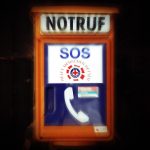Crafting an Impressive Cover Letter for Emergency Planner Positions: Essential Tips and Best Practices
Understanding the Role
Embarking on the journey to secure a position as an emergency planner requires a nuanced understanding of the role itself. Emergency planners are tasked with the formidable responsibility of preparing for, responding to, and recovering from crises. This means your cover letter must reflect not only your qualifications but also your passion for safeguarding communities. Think of it as your opportunity to demonstrate your commitment to resilience and safety.
Tailoring Your Message
One of the most vital aspects of writing a compelling cover letter lies in its personalisation. Generic letters simply won’t cut it. Research the specific organisation you are applying to: delve into their mission, values, and recent projects. This knowledge allows you to craft a narrative that resonates with their objectives. For instance, if they have recently updated their disaster response plans, mention how your previous experience aligns with similar initiatives. This shows that you are not only interested but also informed.
-
Opening Strong
Begin with a hook that captures attention. A powerful opening sentence might reference a recent incident that underscores the importance of effective emergency planning. This immediately situates your letter within a relevant context. -
Showcase Relevant Experience
When detailing your experience, utilise the STAR method (Situation, Task, Action, Result) to articulate your accomplishments clearly. For example, discuss a time when you successfully developed a community disaster response strategy. Highlight your analytical skills and ability to collaborate with various stakeholders. -
Highlight Key Skills
Emergency planning demands a unique skill set. Emphasise your proficiency in risk assessment, crisis management, and communication. If you possess knowledge of relevant legislation or software tools, be sure to mention these as well. This not only demonstrates your capability but also your readiness to contribute from day one.
Demonstrating Soft Skills
While technical skills are undeniably important, soft skills often set candidates apart. Empathy, adaptability, and decisive leadership are crucial in emergency planning. Share anecdotes that illustrate these traits. Perhaps you led a team during a simulation exercise, showcasing your ability to remain calm under pressure while ensuring thorough communication. Such stories enrich your application, making it memorable.
Closing with Impact
As you approach the conclusion of your letter, reiterate your enthusiasm for the role and the organisation. A closing statement that reflects your eagerness to contribute to their mission can leave a lasting impression. For instance, express your desire to engage in proactive planning that enhances community safety and resilience.
In the ever-evolving landscape of emergency planning, crafting a cover letter that stands out is essential. By personalising your message, showcasing your relevant experiences and skills, and weaving in compelling narratives, you can create a document that not only captures attention but also resonates with hiring managers.
CVPortal continues to provide you with a wealth of high-quality CV references, ensuring that you have the tools needed to present yourself effectively in this competitive field.


